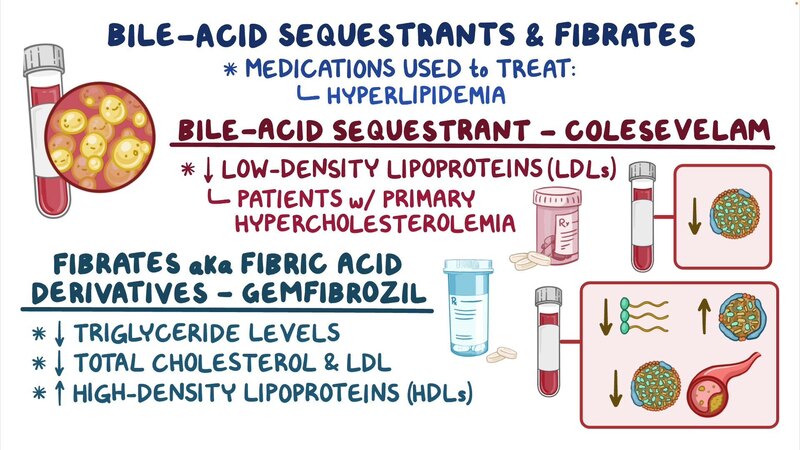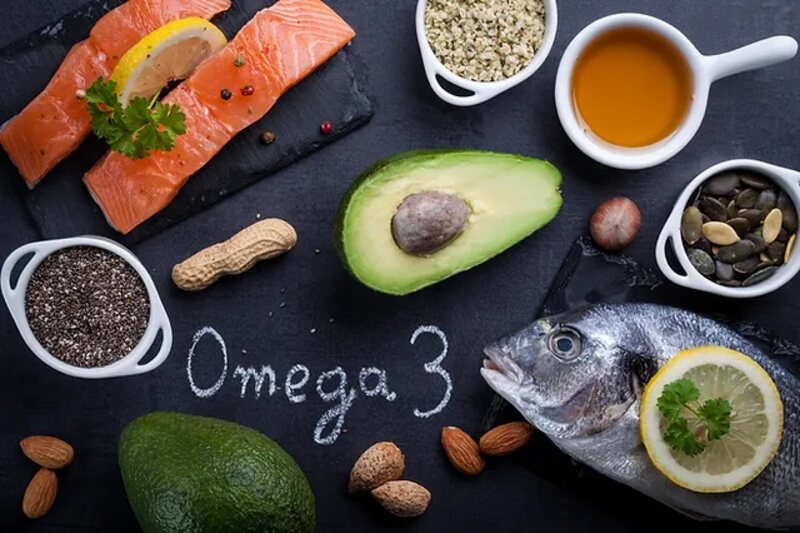Effective Cholesterol Management - Unveiling Statin Alternatives
Dec 29, 2023 By Madison Evans
For optimal cardiovascular health, you must manage cholesterol levels critically. Statins have traditionally served as the primary solution. However, several alternatives, each offering diverse mechanisms and potential benefits are available. This article explores non-statin cholesterol-lowering drugs in depth to illuminate their effectiveness and implications for heart well-being.
Understanding the Role of Cholesterol-lowering Drugs
In preventing cardiovascular diseases, cholesterol-lowering drugs, particularly statins, play a pivotal role. However, beyond these medications lie several classes that offer distinct methods for managing cholesterol levels. To tailor treatments to individual needs, understanding the differences among these alternatives is not just crucial but imperative.
Fibrates - Unlocking Holistic Cholesterol Management
Fibrates, formidable alternatives within the realm of cholesterol-lowering drugs, often stand overshadowed by statins' ubiquity. They specifically target triglyceride levels and carve out a unique niche in enhancing overall cholesterol profiles and cardiovascular health with their nuanced approach.
Benefits of Fibrates:
- Triglyceride Reduction:
By effectively lowering triglyceride levels, fibrates distinguish themselves. This pivotal action targets a key component of lipid profiles, a notable contribution to cardiovascular well-being.
- HDL Cholesterol Elevation:
Fibrates, beyond triglycerides, present another advantageous aspect. They increase high-density lipoprotein (HDL) cholesterol known as the "good" cholesterol. This double effect on lipid parameters offers a comprehensive approach to managing cholesterol.
- Improved Lipid Profile:
Fibrates' overall impact, extending beyond individual lipid components, culminates in an improved lipid profile. By illuminating the interconnectedness of these elements, we understand the comprehensive approach that fibrates offer for pursuing cardiovascular health.
Bile Acid Sequestrants - Unveiling Personalized Cholesterol Control
Bile acid sequestrants, operating discreetly in the spectrum of cholesterol-lowering medications, disrupt the absorption of cholesterol in the digestive tract. Their unique mechanisms warrant exploration for a potential role in personalized cholesterol management despite their less prevalent use as prescriptions.
Key Aspects of Bile Acid Sequestrants:
- Cholesterol Absorption Inhibition:
Inhibiting the absorption of cholesterol within the digestive system distinguishes bile acid sequestrants. This unique mechanism potentially offers tailored solutions for individuals with specific needs, providing an alternative route to cholesterol control.
- Impact on LDL Cholesterol:
Primarily focusing on cholesterol absorption, bile acid sequestrants also exert an influence over low-density lipoprotein (LDL) cholesterol. A nuanced understanding of the impact these medications have on LDL sheds light on their versatility in shaping lipid profiles.

- Considerations for Usage:
A nuanced understanding of patient profiles is necessary for applying bile acid sequestrants. Usage considerations include coexisting conditions, potential interactions with other medications, and individual responses. These factors render them a unique element in cholesterol management's arsenal.
Niacin (Vitamin B3) - The Silent Contributor to Cholesterol Health
Niacin, also known as Vitamin B3, quietly and effectively contributes to the management of cholesterol levels. Although it is not a prescription medication, supplementation with niacin provides an invaluable supplement for strategies in managing cholesterol. Thus, presenting a nuanced approach towards lipid profiles.
The Niacin Advantage:
- Impact on LDL and HDL Cholesterol:
Niacin exhibits a dual impact on cholesterol, positively influencing both LDL and HDL cholesterol. This duality plays an instrumental role in fostering a balanced lipid profile. This underlines its potential significance within the comprehensive management of cholesterol.
- Dosage Considerations:
Careful consideration of dosage is necessary when integrating niacin into strategies for managing cholesterol. A tailored and effective approach is ensured by understanding the optimal levels, as well as potential variations based on individual needs.
- Potential Side Effects:
Just like any intervention, niacin supplementation carries potential side effects. By delving into the spectrum of possible reactions, we inform our decision-making process and strike a balance between using niacin's benefits and its potential drawbacks.
PCSK9 Inhibitors - Precision Redefined in Cholesterol Control
PCSK9 inhibitors, a cutting-edge development, are reshaping the landscape of cholesterol management. By targeting a specific protein with precision-introducing drugs like these. We now have unprecedented control over LDL cholesterol levels. This heralds an entirely new era in our fight against cardiovascular diseases.
Revolutionizing Cholesterol Control:
- Mechanism of Action:
By specifically targeting the PCSK9 protein and impeding its function, PCSK9 inhibitors revolutionize cholesterol control. This action subsequently reduces LDL cholesterol levels. The precision in their mechanism underscores not only their potential but also positions them as groundbreaking contributors to cardiovascular health.
- Clinical Effectiveness:
Understanding the real-world outcomes and impact on patient results of these innovative medications adds significant weight to their clinical effectiveness. This understanding enhances the practical application of PCSK9 inhibitors, thus amplifying their importance. It's a perspective that underscores not just theoretical potentiality but also tangible benefits for patients.
- Considerations for Usage:
Evaluating individual patient profiles, considering costs, and assessing potential interactions: are all crucial factors in the usage considerations of PCSK9 inhibitors despite their promise. It is only through a nuanced understanding that we can effectively integrate these inhibitors into personalized cholesterol management strategies.
Omega-3 Fatty Acids - Dietary Harmony for Cardiovascular Well-Being
The significance of omega-3 fatty acids in managing cholesterol, beyond pharmacological interventions, cannot be overstated. These heart-healthy components found in fatty fish and specific supplements positively influence cardiovascular well-being by directly impacting cholesterol levels.

Omega-3 Benefits:
- Impact on Triglycerides:
Omega-3 fatty acids tangibly impact triglyceride levels, providing a dietary avenue to address this crucial lipid profile component. When we incorporate omega-3s, they complement other strategies. Thus, forming a holistic approach for reducing triglycerides.
- Potential LDL Cholesterol Modification:
Understanding the intricacies of modifying LDL cholesterol with omega-3 fatty acids, is a process that adds layer to their cardiovascular benefits and enhances our nuanced perspective on how they manage lipid profiles.
- Dietary Sources and Supplementation:
By actively understanding the incorporation of dietary sources that provide omega-3 fatty acids and considering their supplementation, individuals can proactively enhance their cardiovascular well-being. This completes a comprehensive picture.
Conclusion
To conclude, the management of cholesterol is an area that extends beyond the domain of statins; understanding alternative drugs and complementary approaches empowers individuals, as well as healthcare providers. This empowerment enables tailored interventions for maximum effectiveness.
Whether it be a deep exploration into fibrates, bile acid sequestrants, niacin, PCSK9 inhibitors, or omega-3 fatty acids. The keys to success lay in individualized strategies specifically addressing each patient's unique needs. We embrace the diversity of cholesterol-lowering options. In doing so, we lay a foundation for our future health, one heartbeat at a time.







